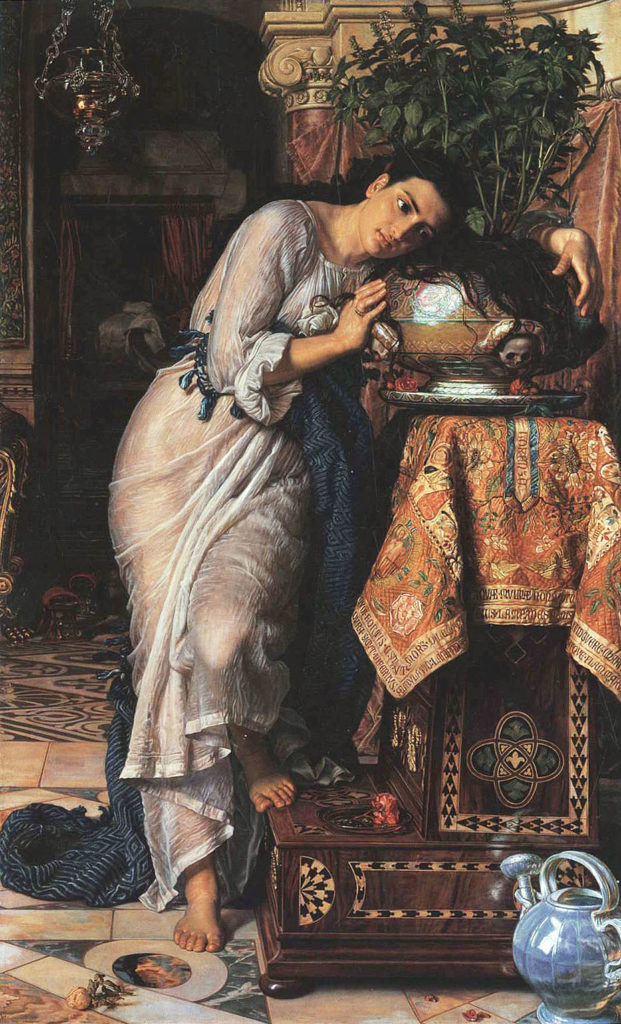John Keats
« Ici repose celui dont le nom était écrit dans l’eau »
Poète du début du XIXème siècle, John Keats inspira le mouvement
pré-préraphaélite dont ils ont les même influences, notamment le
moyen-âge, Shakespeare et un amour de la nature.
Il est le symbole du romantisme que ce soit par ces personnages féminins, comme Isabella et La Belle Dame sans Merci, ou sa vie et sa personnalité attachante et douce.
Orphelin à 15 ans, il se chargera de ses frères et sœurs et veillera
notamment avec abnégation sur son cadet atteint de la tuberculose. Il
meurt finalement également de cette maladie… à 25 ans.
Il eut une vie brève mais passionnée qui lui vaudra la reconnaissance, malheureusement en grande partie posthume, de ses pairs.
Pour plus de détail une courte biographie.
Bright star
Bright star, would I were steadfast as thou art –
Not in lone splendour hung aloft the night
And watching, with eternal lids apart,
Like Nature’s patient, sleepless Eremite,
The moving waters at their priestlike task
Of pure ablution round earth’s human shores,
Or gazing on the new soft-fallen mask
Of snow upon the mountains and the moors –
No – yet still stedfast, still unchangeable,
Pillow’d upon my fair love’s ripening breast,
To feel for ever its soft fall and swell,
Awake for ever in a sweet unrest,
Still, still to hear her tender-taken breath,
And so live ever – or else swoon to death.

La Belle Dame Sans Merci
IV.
I met a
lady in the meads,
Full beautiful – a faery’s child,
Her hair was long, her foot was light,
And her eyes were wild.
V.
I made a
garland for her head,
And bracelets too, and fragrant zone;
She look’d at me as she did love,
And made sweet moan.
VI.
I set her
on my pacing steed,
And nothing else saw all day long,
For sidelong would she bend, and sing
A faery’s song.
VII.
She found
me roots of relish sweet,
And honey wild, and manna dew,
And sure in language strange she said –
«I love thee true.»
VIII.
She took me
to her elfin grot,
And there she wept, and sigh’d fill sore,
And there I shut her wild wild eyes
With kisses four.
Endymion
Book I
A THING of beauty is a joy for ever:
Its loveliness increases; it will never
Pass into nothingness; but still will keep
A bower quiet for us, and a sleep
Full of sweet dreams, and health, and quiet breathing.[…]

Isabella or The Pot of Basil A Story from Boccaccio
LIII.
And she forgot the stars, the moon, and sun,
And she forgot the blue above the trees,
And she forgot the dells where waters run,
And she forgot the chilly autumn breeze;
She had no knowledge when the day was done,
And the new morn she saw not: but in peace
Hung over her sweet Basil evermore,
And moisten’d it with tears unto the core.
